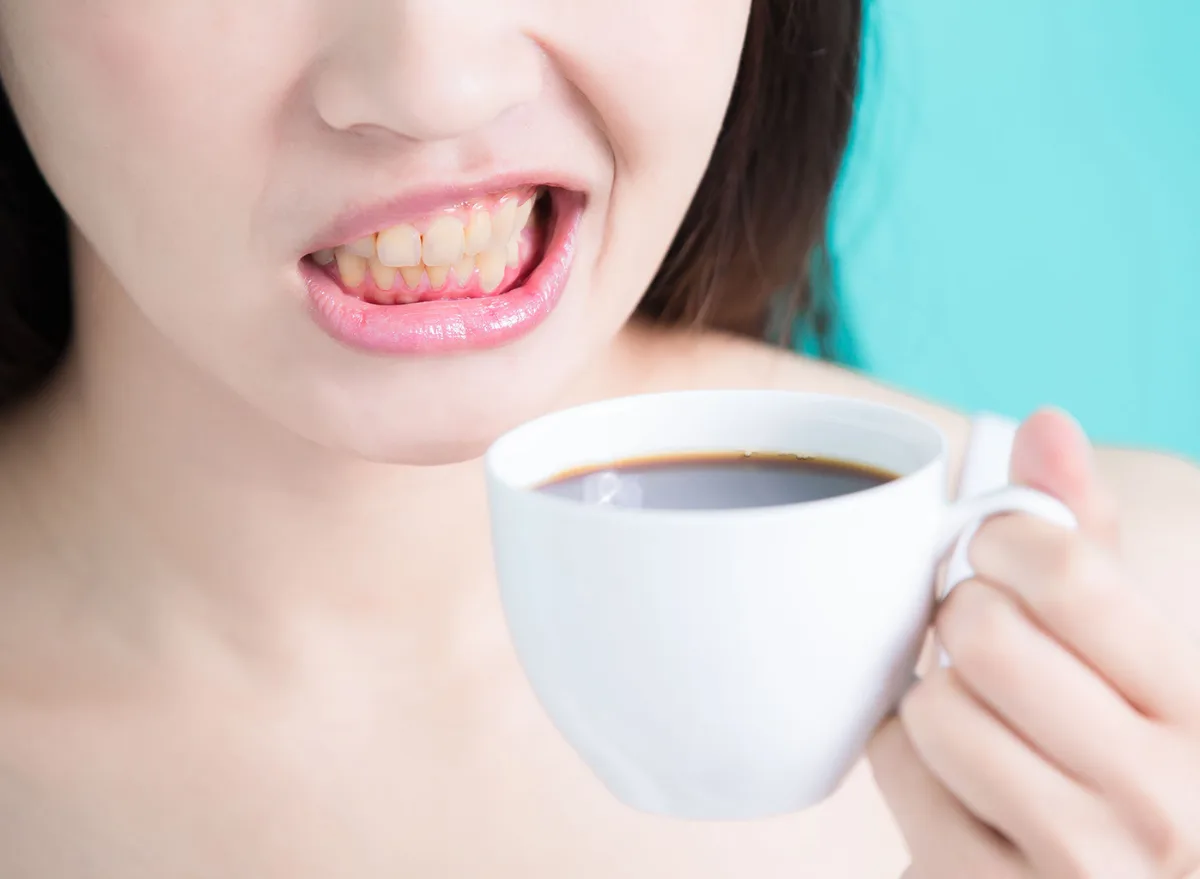Does Coffee Stain Your Teeth?
Among the many concerns, people have about coffee is whether it can stain your teeth. Coffee is a natural drink that contains antioxidants, which help fight gum disease and tooth decay. It also has antibacterial properties. However, coffee is also acidic, which may contribute to coffee stain your teeth.
Table of contents
Tannins are a type of chemical compound that stain teeth. These compounds can be found in coffee, tea, and wine. Tannins attract colorless chemical compounds called Chromogens. They also bind to proteins in water, creating a phenolic fusion. Tannins are also water-soluble, which means they can be quickly broken down, allowing the compounds to be absorbed into the mouth and teeth.
When drinking coffee, it is essential to avoid it in one sitting. The longer coffee stays on your teeth, the more likely coffee stain your teeth. Drinking coffee with a straw can help minimize the damage to your teeth. It also reduces the contact between your teeth and coffee.
Does Brushing Teeth Prevent Coffee Stains?

You should also brush your teeth after drinking coffee. This will help remove any coffee residue that might have stayed on your teeth for hours. Also, it would be best if you brushed your teeth twice a day two times.
You should also drink less coffee if you want to prevent staining. Coffee with less caffeine will reduce the amount of poly hat absorbed into your body. You can also try drinking cold-brewed old brewed, leaving less staining on your cold-brewed old brewed coffee and taking longer to brew, so it will take longer for the staining effects to occur.
How to Get Rid of Stains on Teeth
Getting rid of stains on teeth is an excellent way to improve oral health and appearance. The most crucial step is to know what causes stains. You can use a variety of solutions to remove them.
One of the best ways to prevent tooth stains is to avoid smoking and drinking coffee and alcohol. Smoking and alcohol can damage the enamel on your teeth, and both can cause teeth stains. You can also use an antibacterial mouthwash to reduce plaque and remove stains. Brush your teeth twice a day and floss after you eat or drink something that may cause staining.
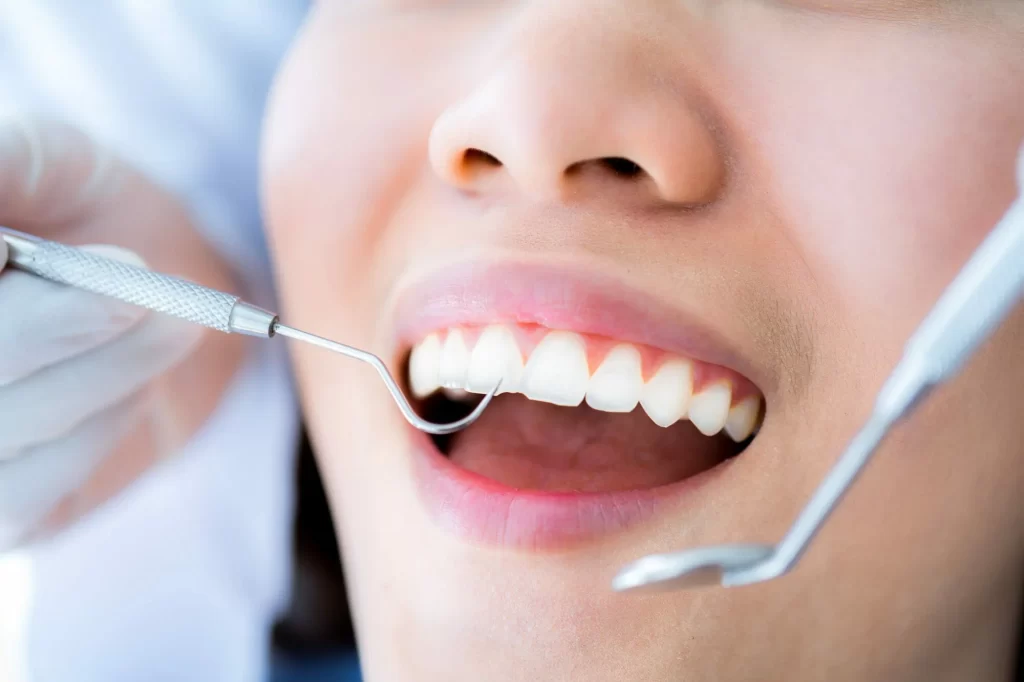
You can also try a whitening toothpaste. Colgate Max White is a great product that can help remove superficial stains. It is also available at drug stores. A baking soda and water mixture is another way to whiten your teeth. It is a simple procedure that should show results within a few weeks.
Other causes of stained teeth include certain medications, injuries, or dental procedures. If you suspect a medical process causes your stains, you should talk to your dentist.
Foods and beverages with dark hues can also leave staining on your teeth. Dark foods include red wine, tea, coffee, and black tea. You can also get stains on your teeth from artificially colored foods and juices.
Some most straightforward ways to get rid of tooth stains include brushing, flossing, and using a mouth rinse. Brushing with toothpaste that contains fluoride can help prevent staining. Flossing after eating or drinking food that may stain your teeth can remove most of the staining particles from your teeth.
What Type of Liquid Stains Teeth the Most?
Those with stained teeth know that a dark, acidic beverage can wear away at their enamel. In addition to acidic drinks, other substances can stain your teeth. These foods and beverages contain chromogens, which can attach to tooth enamel.
Drinks with solid color pigments, such as tea and coffee stain your teeth. They also contain tannins, which increase the likelihood that stains will form. Dark juices and sauces are the other most common liquids that stain your teeth. Tomato sauce has a pigment that can stain your teeth. Fortunately, you can avoid this by rinsing your mouth with water after eating.
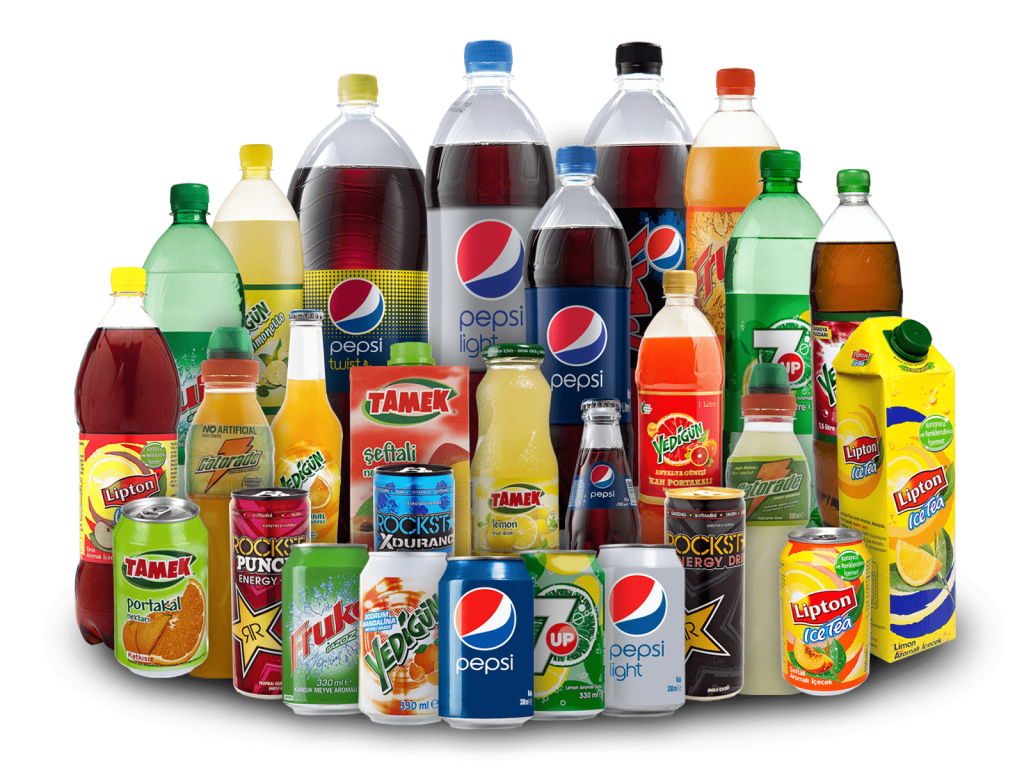
Foods that stain your teeth include hard candy, dark chocolate, berries, and some sauces. Limiting your intake of these foods is essential because they contain tannins, which can cause teeth to stain. Soda is another common culprit. It includes a lot of sugar and acid, which can wear away at your enamel. It also contains food coloring.
Other beverages that can stain your teeth include dark fruit juices, pies made with brightly colored fruit, and sports drinks. They also contain chromogens, which make them more likely to stain your teeth. The tiniest pores in your teeth can catch residue from these beverages, which can eat away at your enamel. The most important thing to remember when it comes to beverages is to drink water and brush your teeth as soon as possible.
Types of Teeth Stains
Various foods, beverages, and medications can lead to different teeth stains. Some stains can be permanent, while others can be reversed. Knowing what causes them can help you to avoid stains and choose the best treatment. Foods and beverages with chromogens, or colored pigments, can cause teeth to stain. Foods that contain tannins can also make teeth more vulnerable to staining.
Extrinsic Stains

Extrinsic stains are those that develop on the teeth’s surface as a result of often ingesting colorful meals, beverages, or cigarettes. With regular brushing and flossing, these stains may frequently be eliminated with ease. Among the frequent reasons for external stains are:
- Coffee
- Tea
- Wine
- Soda
- Berries
- Soy sauce
- Curry
Intrinsic Stains

On the other hand, intrinsic stains happen within the tooth structure and might be harder to get rid of. Intrinsic stains may result from:
- Aging
- Excessive fluoride exposure
- Trauma
- Certain medical conditions
Tobacco Stains

Tooth stains are frequently brought on by tobacco usage. The nicotine and tar in tobacco products can discolor teeth a brownish or yellowish-brown color. The easiest strategy to avoid cigarette stains is to stop using tobacco or to use smokeless tobacco.
Food and Drink Stains

Extrinsic stains can often be caused by stains from colorful meals and beverages. The most infamous offenders include:
- Coffee
- Tea
- Wine
- Candy
Age-Related Stains
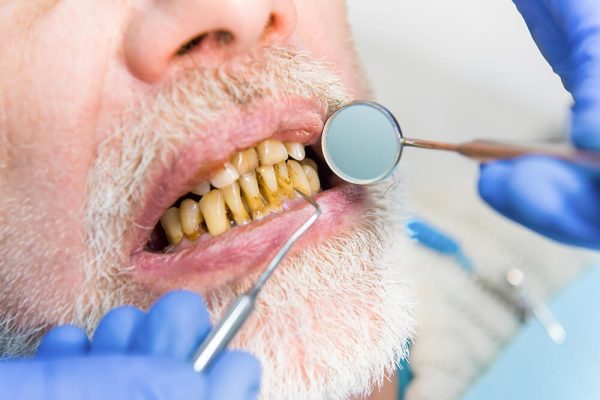
Age-related tooth enamel thinning can be seen, exposing the yellow or grey dentin layer underneath. The teeth may seem yellow or discolored as a result. Age-related stains can be avoided with routine dental cleanings and examinations.
Tartar Stains
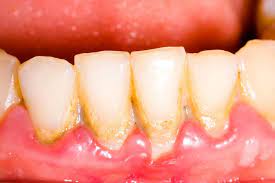
Calculus, commonly referred to as tartar, is a hard deposit that can develop on teeth and result in browning or yellowing. Tartar accumulation may be avoided with regular brushing and flossing, but may require a professional cleaning to be removed.
Antibiotic Stains
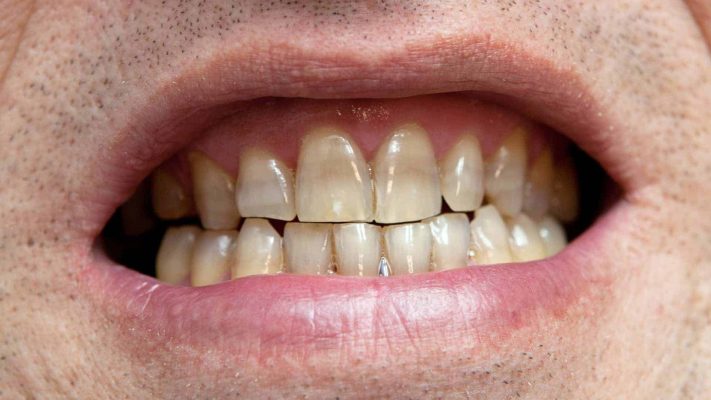
Certain antibiotics, such as tetracycline, can cause intrinsic stains in developing teeth. To avoid antibiotic stains, it’s important to follow your dentist’s instructions carefully when taking antibiotics.
In addition
The color of coffee stains can vary depending on various factors, including the type of coffee, its strength, and your oral hygiene habits. Darker roasts and stronger brews tend to have a higher staining potential. Additionally, if you regularly consume coffee or drink it over a long period, the stains can become more pronounced.
To minimize coffee stains on your teeth, you can try the following tips:
- Brush or rinse your mouth after consuming coffee to remove the pigments from the surface of your teeth.
- Use a straw to drink coffee, directing the liquid towards the back of your mouth to reduce contact with your teeth.
- Drink water alongside or after your coffee to help wash away the pigments and reduce their contact time with your teeth.
- Consider using whitening toothpaste or seeking professional teeth whitening treatments to remove or reduce existing stains.
Final Thoughts
In conclusion, coffee is healthy but can discolor your teeth. Coffee tannins attract chromogens and bind to oral proteins, coloring teeth. Avoid drinking coffee in one sitting, use a straw, clean your teeth afterward, and drink less coffee to limit tooth damage. Dark juices, sports drinks, tea, wine, and soda discolor teeth. Diet, medication, and cigarette usage can produce intrinsic and extrinsic tooth discoloration. Brushing, flossing, and using mouthwash are essential for healthy, stain-free teeth. If your teeth are stained, try whitening toothpaste, baking soda, and eliminating stain-causing foods and drinks. Dentists can cure persistent coffee stain your teeth.
More greats? Check our helpers category.
FAQ About Coffee Stain Your Teeth
Coffee can stain your teeth, but you can lessen the possibility by using a straw, cleaning right away after drinking coffee, and using toothpaste that whitens teeth. Additionally, rinsing off any residue with water after coffee will help.
One cup of coffee a day is unlikely to noticeably stain your teeth, but frequent intake, combined with other lifestyle choices like smoking and drinking alcohol, might eventually cause discoloration.
Coffee stains on teeth can be stubborn and challenging to get rid of. Professional teeth whitening or scaling and polishing procedures may be able to get rid of the stains in some instances. Other times, the stains could be irreversible.
Stopping your coffee habit is probably going to improve how white your teeth seem, especially if you also have a regular brushing and flossing routine. However, a number of variables, such as how frequently you drink coffee and the degree of staining already present, will affect how much your teeth will whiten.
Yes, coffee with milk can still discolor your teeth, although the presence of milk may reduce this possibility. Coffee stains may also be prevented by using a straw to drink it and cleaning your teeth right after after.




